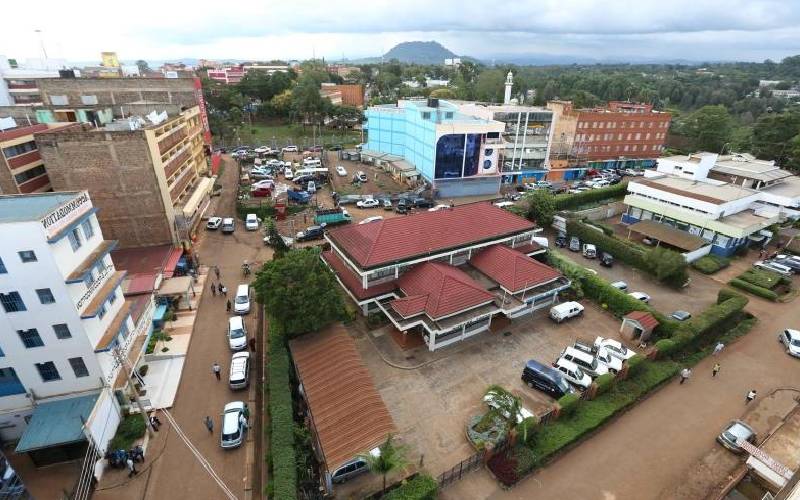×
The Standard e-Paper
Join Thousands Daily

An aerial view of Nyeri Town. [Kibata Kihu, Standard]
In their heydays, when they forayed into various towns, former retail giants Nakumatt and Tuskys did not set foot in Nyeri.







